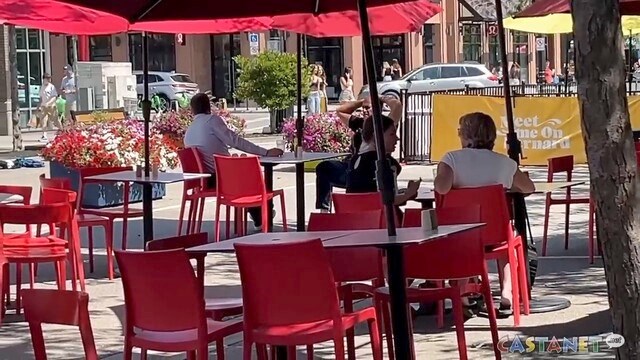All the numbers from the summer are not in yet, but the president and CEO of the BC Hotel Association says 2024 will not be a stellar year for tourism in the Thompson-Okanagan.
Occupancy, rates down in some communities
The latest statistics show occupancy rates in July were a mixed bag in the region, and the average price of a hotel room fell in Kelowna and the South Okanagan year-over-year.
According to the Destination BC Tourism Industry Dashboard, Kelowna occupancy was up 2.3% to 79.5% in July, Kamloops was down 2.7% to 81.9% occupancy and the North Thompson-Okanagan rose 3.4% to 79.5%. The South Okanagan saw a slump of 4.3% to a July occupancy rate of only 61.9%. The provincial average was 80.8%
The average daily room rate in July was $262 in Kelowna, a 1.6% drop from 2023. The rate also fell in the South Okanagan to $329. The average daily room rate in Kamloops jumped 12.1% to $200 in July, and in the North Thompson-Okanagan it was up 4.2% to $202. The provincial average daily room rate was $308.
“What has affected hotels’ profitability – which is going down, not going up – is the same as what is affecting any household,” said BC Hotel Association CEO Ingrid Jarrett.
“You have those fixed costs such as insurance, property tax, labour costs, energy costs that are all going up exponentially, much more than what average daily rates are or what profitability is.”
Wildfire fears still being felt despite lack of smoke
Jarrett also attributes the soft summer to a hangover from last year’s travel ban and wildfires.
“If you look at the Central Okanagan, for example, and the South Okanagan, there was no smoke. There was a couple of small fires which were dealt with very, very quickly, yet there is a perception that there may be smoke in the air and a danger of a fire.”
She says that has made it increasingly important to provide real-time information to assist people when they are making their travel plans. Economic conditions are also taking a toll.
“We are seeing some trends for travel, which is people are staying a bit closer to home and their holidays tend to be not as long as they were a few years ago. We’re feeling that reduction in travel in golf, in restaurants, in hotels.”
Events shifting away from August
Jarrett notes that, unlike the Thompson-Okanagan, major centres like Vancouver, Victoria and Whistler are having an “exceptional year”. She says they are faring better because they draw more corporate travel, international visitors, conferences, concerts and sporting events.
She points out that there were changes made to the timing of some major events in the Okanagan to try to avoid smoke, fire and other disruptions.
“We are certainly seeing business move from what was historically the highest month. The month that everybody wanted to be in the Interior of B.C. was August. A lot of business events, sporting events, weddings, we’re seeing them move to earlier in the year. So, May June, July and September from August," said Jarrett.
“We also have had a lot of uncertainty around air, potential strikes or labour unrest. We’ve had quite a bit of disruption in the air travel and people are increasingly hesitant.”
Fewer people were flying into Kelowna compared to the summer of 2023. According to statistics posted by Kelowna International Airport, there were 184,312 passengers in July, a 6.8% decrease from last year, when 197,932 passengers passed through YLW. However, it is still higher than the 178,602 in 2019, before the COVID-19 pandemic seriously reduced air travel.
Where were the Albertans?
Like others in the region, Jarrett has noticed the shortage of Alberta licence plates this summer.
She suspects the wildfire that destroyed part of the Jasper townsite likely exacerbated fears of wildfires disrupting family vacations.
“It’s very important we pay attention to that. They are our best neighbour and our biggest tourism visitor. There’s more Albertans that come to B.C. than from any other jurisdiction.”
All of this comes as many small and medium-sized businesses still haven’t recovered from the pandemic downturn. She says many are “teetering” and they can’t just raise prices.
“So, it’s not a stellar year. It’s probably not the worst year we’ve ever had but it’s certainly not one that we can champion how well we’ve done. It’s been extremely challenging.”




